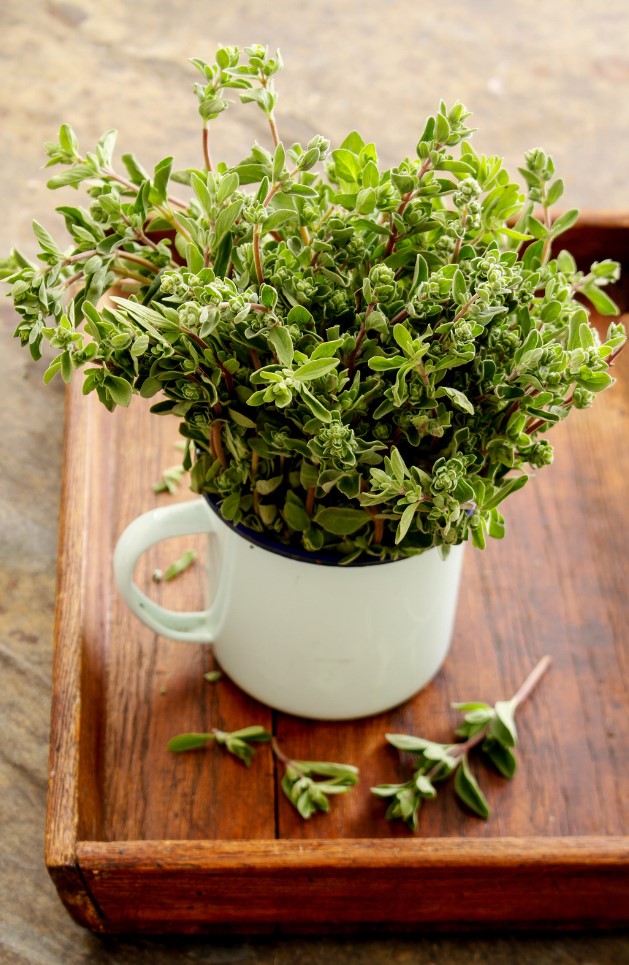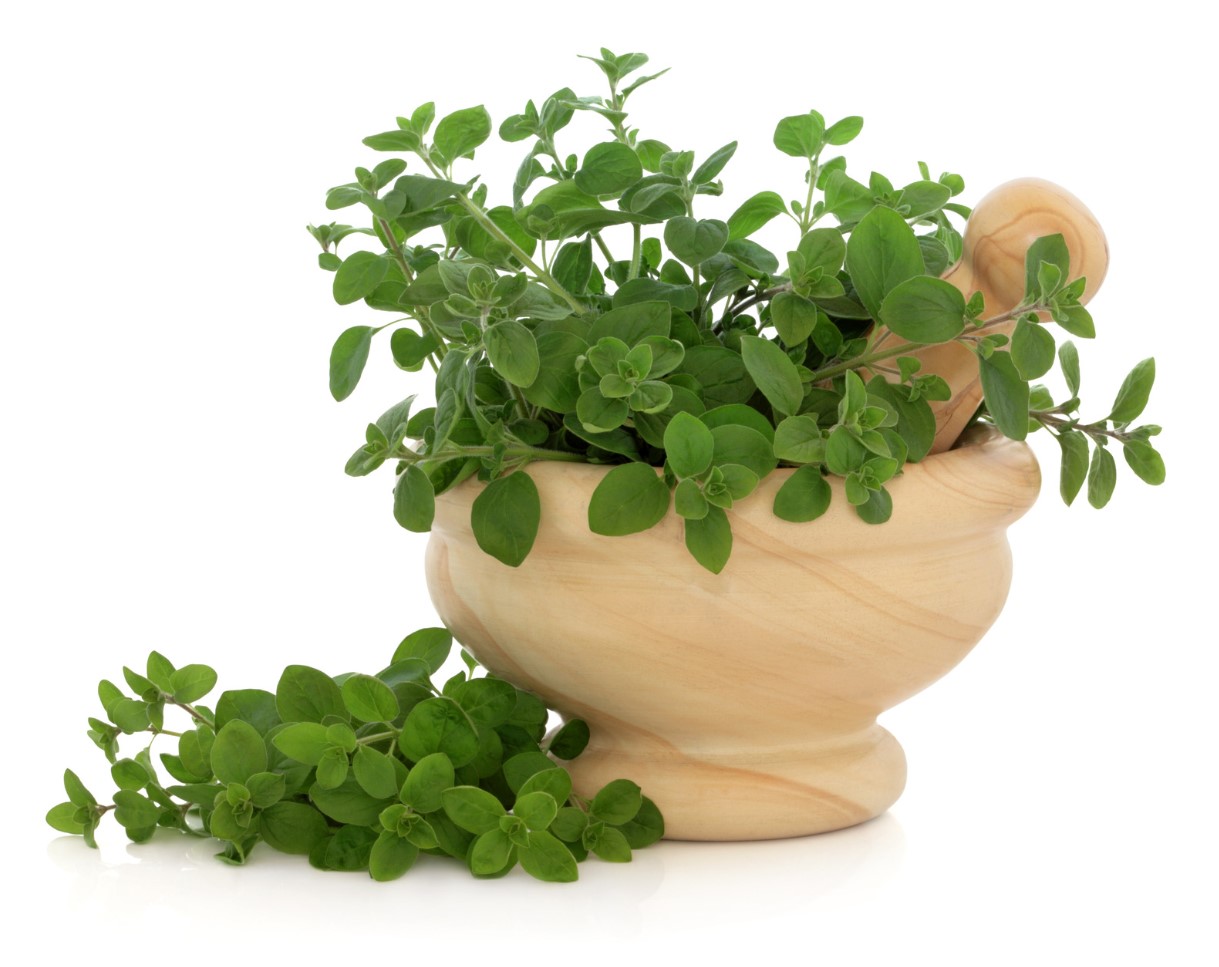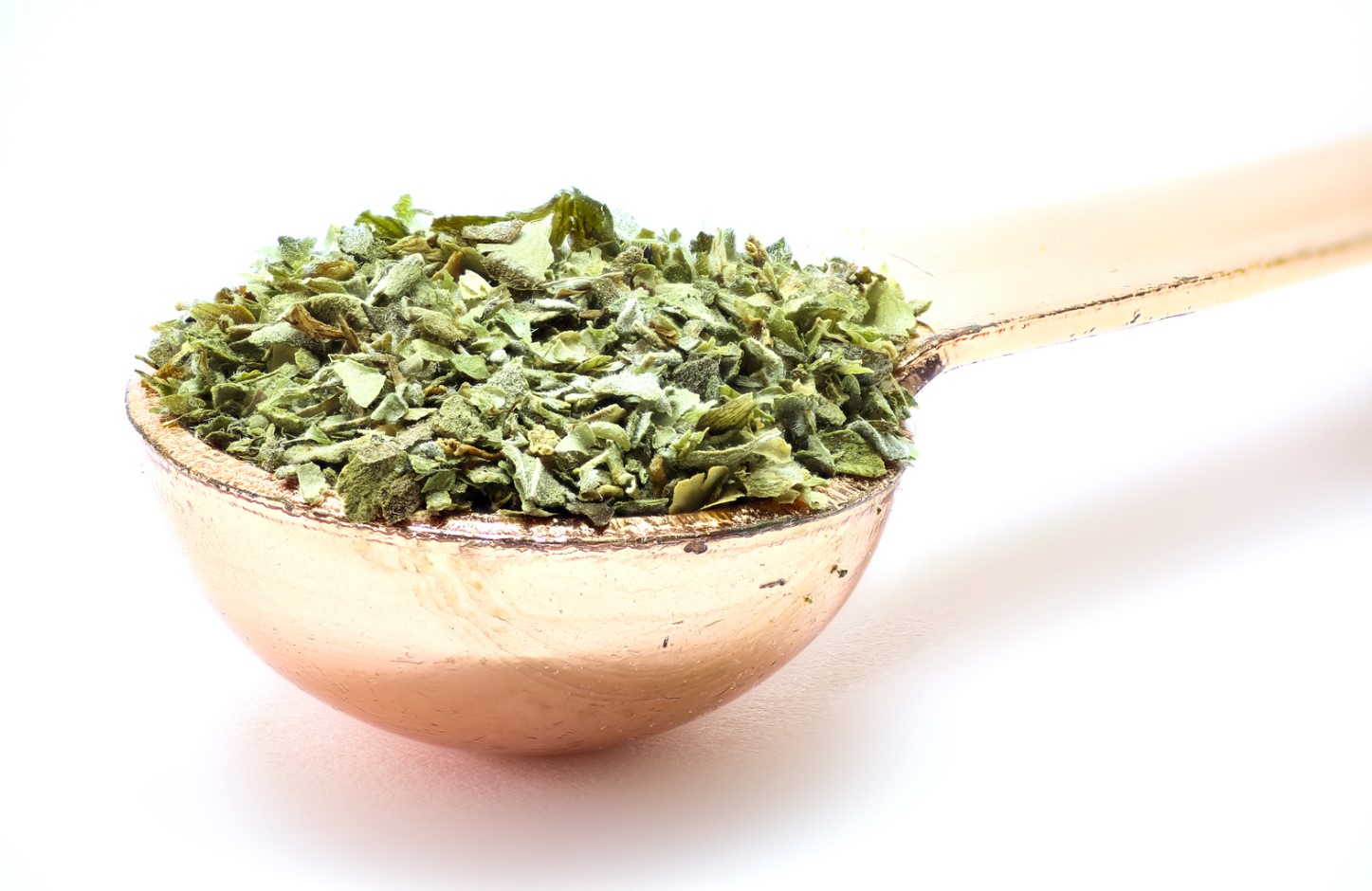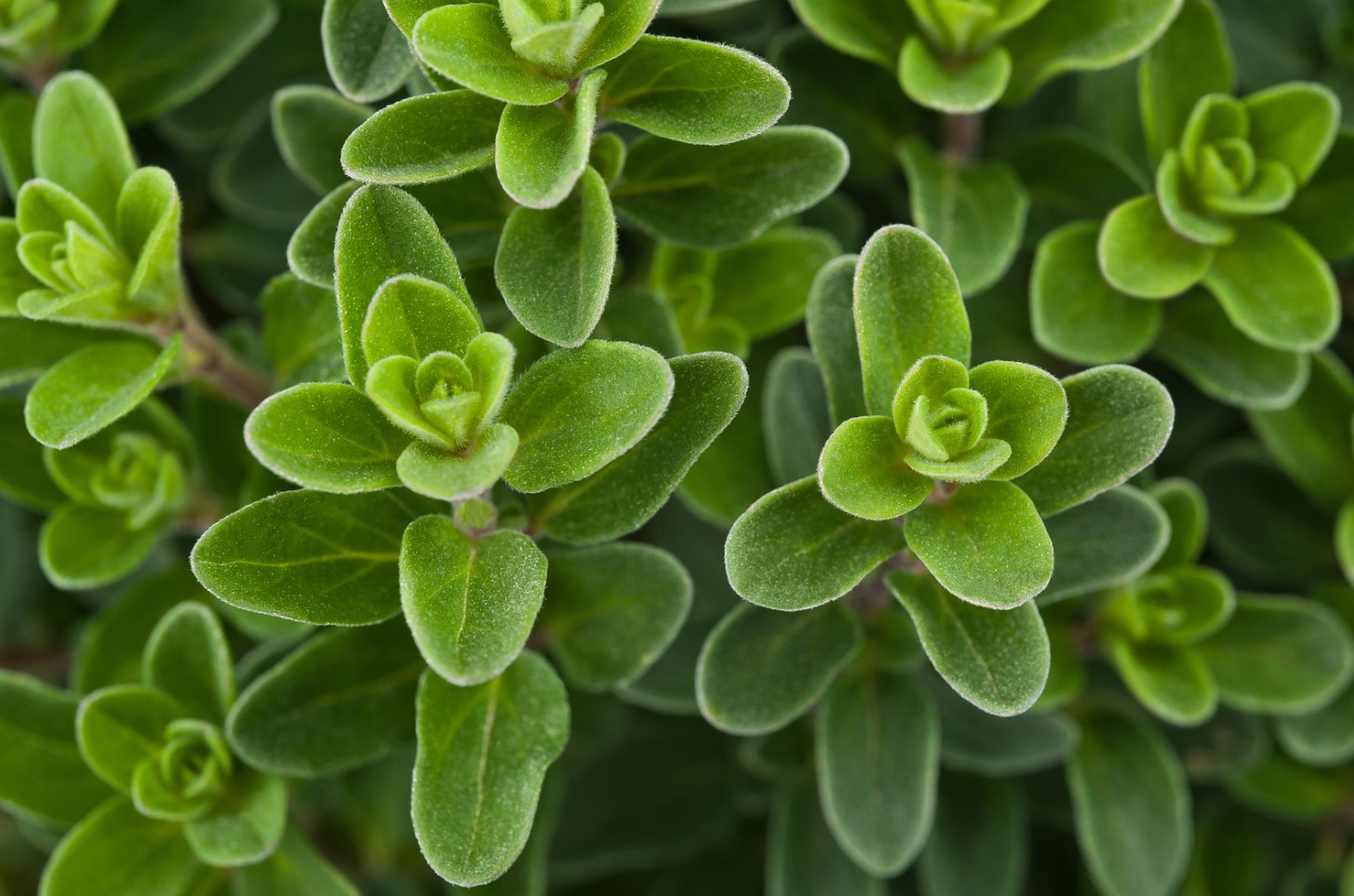Introduction To Marjoram: A Versatile Herb
Marjoram is a versatile herb that can be used in cooking, as a medicinal herb, and even as a natural air freshener. This herb, which is a member of the mint family, can add a unique flavor to many dishes and has been used for centuries for its medicinal properties.
Marjoram is native to the Mediterranean region and has been used for both culinary and medicinal purposes since ancient times. The ancient Greeks and Romans used marjoram in cooking and as a remedy for various ailments. In fact, marjoram was considered a symbol of happiness and was used by the ancient Greeks to make wreaths for newlyweds.
Today, marjoram is used as a natural remedy for a variety of health conditions. It contains a high level of antioxidants, which help to protect the body from oxidative stress and may reduce the risk of chronic diseases. Additionally, marjoram has anti-inflammatory properties that can help to reduce inflammation in the body, including joint pain.
- Marjoram has been used for centuries for its medicinal properties.
- Ancient Greeks and Romans used marjoram in cooking and as a remedy for various ailments.
- Marjoram is a natural remedy for a variety of health conditions.
| Nutritional Profile | Amount per 100g |
|---|---|
| Calories | 271 |
| Fat | 7g |
| Carbohydrates | 49g |
| Protein | 12g |
Marjoram can be used in a variety of ways, including as a tea, essential oil, tincture, or fresh herb. It can also be added to many dishes to add flavor and health benefits. Whether you’re looking for a natural remedy for a health condition, or simply want to add a unique flavor to your cooking, marjoram is a versatile herb that should be a part of your healthy lifestyle.

Marjoram’s Nutritional Profile: Rich İn Antioxidants
Marjoram is more than just an herb that adds flavor to your meals. It is a powerhouse of nutrients that offer numerous health benefits. Marjoram’s nutritional value is unmatched as it contains some of the essential vitamins and minerals that your body needs to function well. One of the most notable nutrients found in marjoram is antioxidants.
Antioxidants are compounds that help protect your body from oxidative stress, which can lead to chronic inflammation and several diseases. Marjoram is rich in antioxidants such as carvacrol, thymol, and rosmarinic acid. These compounds have strong anti-inflammatory and antimicrobial properties that can help you stay healthy and prevent illnesses.
Marjoram’s antioxidant content is not limited to the aforementioned compounds. It also contains high amounts of vitamin C, E, and A. Vitamin C is an essential nutrient that boosts your immune system and helps prevent cell damage caused by free radicals. Vitamin E is another antioxidant that helps protect against heart disease and cancer. It also plays a vital role in maintaining healthy skin and eyes. Vitamin A, on the other hand, is beneficial for good vision, healthy skin, and the immune system. Marjoram is a good source of all these vitamins, making it an excellent addition to your diet.
- Carvacrol
- Thymol
| Vitamins | Benefits |
|---|---|
| Vitamin C | Boosts immune system |
| Vitamin E | Protects against heart disease and cancer. Maintains healthy skin and eyes |
| Vitamin A | Good vision, healthy skin and immune system |
In conclusion, marjoram has an impressive nutritional profile, and its high antioxidant content makes it a great addition to your diet. Incorporating this herb into your meals can boost your immune system and help prevent chronic inflammation and diseases. Try adding fresh or dried marjoram to your salads, soups, stews, or any dish that could use some flavor and health benefits.

Marjoram For Digestive Health: Alleviating Bloating And Gas
The digestive system is one of the most vital and complex systems in our body. It breaks down the food we eat into nutrients for our body to absorb and use for energy, growth, and repair. However, our eating habits and lifestyle choices can often cause digestive discomforts such as bloating and gas. These discomforts can be especially frustrating and embarrassing, especially when they occur in social settings. Fortunately, there are natural remedies such as essential oils and herbs that can help alleviate these symptoms. One such herb is marjoram.
Marjoram, also known as Origanum majorana, is a versatile herb that belongs to the same family as oregano. It has been used for centuries in traditional medicine to treat various ailments, including digestive issues. Marjoram contains compounds that have anti-inflammatory, anti-spasmodic, and anti-bacterial properties that can help soothe the digestive system.
To use marjoram for digestive health, you can add the fresh or dried herb to your meals or brew it into tea. Drinking marjoram tea after meals can help stimulate digestion, reduce bloating, and relieve gas. You can also use marjoram essential oil by diluting a few drops with a carrier oil and massaging it onto your abdomen. This can help soothe any cramps or spasms in the digestive tract.
- Marjoram’s anti-inflammatory properties can help reduce inflammation in the digestive tract, which can lead to bloating and discomfort.
- Marjoram’s anti-spasmodic properties can help soothe the muscles in the digestive tract, which can help alleviate cramps and spasms that cause gas and bloating.
- Marjoram’s natural antimicrobial properties can help fight off harmful bacteria in the digestive tract that can cause digestive issues.
It’s important to note that while marjoram can be beneficial for digestive health, it’s not a substitute for a healthy diet and lifestyle. Eating a balanced diet, drinking plenty of water, and staying active are crucial for maintaining a healthy digestive system. If you experience severe or persistent digestive issues, it’s important to consult with a healthcare provider to rule out any underlying conditions.
In conclusion, marjoram is a natural and effective way to alleviate bloating and gas, two common digestive discomforts that can be a source of social embarrassment. Incorporating marjoram into your meals or drinking it as tea can help soothe the digestive tract and improve overall digestive health. As always, it’s important to listen to your body’s needs and make lifestyle choices that benefit your overall health and well-being.
Marjoram’s Anti-inflammatory Properties: Reducing Joint Pain
Marjoram, a herb belonging to the mint family, has been used for medicinal purposes for centuries. Recently, researchers have discovered that marjoram possesses anti-inflammatory properties that can help reduce joint pain. Inflammation is the body’s natural response to an injury, but when this response becomes chronic, it can lead to various health conditions such as arthritis, asthma, and heart disease. Marjoram’s anti-inflammatory properties make it a valuable herb in the field of alternative medicine.
Marjoram contains compounds such as rosmarinic acid, borneol, and terpinen-4-ol, which have been found to have anti-inflammatory properties. These compounds work by inhibiting the production of inflammatory molecules and suppressing the activation of immune cells that trigger inflammation. The anti-inflammatory effects of marjoram have been studied in animals and humans, and the results have been promising.
- In a study published in the Journal of Medicinal Food, researchers found that marjoram extract reduced the inflammation in the joints of rats with arthritis.
- In another study published in the Journal of Natural Products, researchers found that the essential oil of marjoram had anti-inflammatory effects on human immune cells.
Marjoram can be consumed in various forms, such as in teas, oils, and supplements. Drinking marjoram tea can be a soothing way to reduce joint pain. Simply steep 1 teaspoon of dried marjoram in a cup of hot water for 10 minutes, strain, and enjoy. Marjoram oil can also be used topically by applying it directly to the affected area or adding a few drops to a warm bath.
| Benefits of marjoram for joint pain | How to use |
|---|---|
| Reduces inflammation | – Drink marjoram tea – Apply marjoram oil topically |
| Relieves pain | – Drink marjoram tea – Apply marjoram oil topically |
| Improves mobility | – Drink marjoram tea – Apply marjoram oil topically |
While marjoram is generally safe to consume, it is important to consult with a healthcare professional before adding it to your diet, especially if you are pregnant, breastfeeding, or taking medication. It is also important to note that marjoram should not be used as a substitute for medical treatment. If you are experiencing chronic joint pain, seek medical attention.
Marjoram’s anti-inflammatory properties make it a valuable herb in reducing joint pain. As more research is being conducted on its health benefits, marjoram is gaining popularity in the field of natural medicine. Incorporating marjoram into your diet and lifestyle can be a simple and effective way to manage joint pain and improve overall health.

Marjoram For Respiratory Health: Clearing Congestion
Marjoram is a versatile herb with a wide range of health benefits. One of its key benefits is its ability to promote respiratory health. Marjoram has been traditionally used for centuries to ease congestion and clear airways. It contains compounds that possess potent anti-inflammatory and antimicrobial properties, making it an ideal herb to address respiratory issues caused by infections or inflammation.
Marjoram can alleviate symptoms of respiratory conditions such as asthma, bronchitis, and sinusitis. Its expectorant properties help loosen mucus and phlegm, making it easier to expel. This herb can act as a natural decongestant and facilitate breathing by easing nasal congestion and sinus pressure.
- Marjoram can be consumed in various forms, such as adding fresh or dried marjoram to dishes, taking supplements or drinking marjoram tea.
- Marjoram tea is an excellent natural remedy for respiratory issues. It is easy to prepare and has a soothing effect on sore throats and coughs.
- Inhaling steam infused with marjoram essential oil can help alleviate respiratory distress quickly.
Marjoram’s high concentration of antioxidants, such as rosmarinic acid, helps reduce inflammation in the respiratory system. This reduction in inflammation helps to reduce symptoms such as coughing and wheezing. Marjoram also has antibacterial properties that can help to prevent respiratory infections from taking hold in the lungs or sinuses.
The benefits of marjoram for respiratory health are well known, and this herb has been historically used as a natural remedy for numerous respiratory ailments. Incorporating marjoram into our diet and lifestyle can provide a natural and effective method of clearing respiratory congestion and preventing respiratory infections from taking hold.
Marjoram’s Antimicrobial Properties: Fighting Infections
Marjoram, also known as Origanum majorana, is a versatile herb that has been used for centuries as a culinary and medicinal ingredient. The herb is native to the Mediterranean region and is known for its unique flavor and scent. In this article, we will be discussing Marjoram’s antimicrobial properties and how it can help fight infections.
Antimicrobial agents are substances that are used to treat or prevent the growth of microorganisms such as bacteria, viruses, and fungi. Marjoram contains several compounds that have antimicrobial properties, including carvacrol, thymol, and terpinene. These compounds work by damaging the cell wall of the microorganisms, making them vulnerable to destruction by the immune system.
- Carvacrol: A phenol compound found in Marjoram that has been found to inhibit the growth of several types of bacteria, including Staphylococcus aureus, Escherichia coli, and Salmonella.
- Thymol: A monoterpene alcohol found in Marjoram that has antifungal and antibacterial properties. It has been shown to inhibit the growth of Candida albicans, a type of yeast that can cause infections.
- Terpinene: A terpene compound found in Marjoram that has antimicrobial and antioxidant properties. It has been found to inhibit the growth of several types of bacteria, including E. coli, Bacillus subtilis, and Pseudomonas aeruginosa.
| Microorganism | Compound from Marjoram | Effect |
|---|---|---|
| Staphylococcus aureus | Carvacrol | Inhibit growth |
| Escherichia coli | Carvacrol, Terpinene | Inhibit growth |
| Salmonella | Carvacrol | Inhibit growth |
| Candida albicans | Thymol | Inhibit growth |
| Bacillus subtilis | Terpinene | Inhibit growth |
| Pseudomonas aeruginosa | Terpinene | Inhibit growth |
The antimicrobial properties of Marjoram make it useful in preventing and treating infections. It can be consumed as a tea or added to meals to enhance its beneficial effects. Marjoram essential oil can also be used topically to treat skin infections, wounds, and fungal infections. However, it is important to note that Marjoram should not be used as a substitute for prescribed medication in treating serious infections.
In conclusion, Marjoram’s antimicrobial properties make it a valuable herb for fighting infections. Its compounds, carvacrol, thymol, and terpinene, work together to inhibit the growth of bacteria, viruses, and fungi. Incorporating Marjoram into a healthy lifestyle can enhance overall health and well-being.

Marjoram For Cardiovascular Health: Lowering Blood Pressure
Marjoram is considered as one of the most beloved herbs since ancient times. This aromatic herb is known for its fragrant and delicate taste, which makes it an essential ingredient in several cuisines. Apart from its culinary uses, marjoram is also a popular natural remedy for various health issues. One of the significant benefits of marjoram is its ability to promote cardiovascular health by lowering blood pressure.
Studies have shown that marjoram’s essential oils contain compounds that have a relaxing effect on blood vessels. These compounds are known as terpenes and flavonoids, which work together to reduce blood pressure levels. According to research, regular consumption of marjoram can help individuals with hypertension manage their blood pressure effectively.
- Marjoram: a versatile herb
- Marjoram’s nutritional profile: rich in antioxidants
- Marjoram for digestive health: alleviating bloating and gas
Marjoram’s health benefits can be attributed to its high content of antioxidants, which help reduce oxidative stress in the body. Oxidative stress can lead to several chronic diseases, including cardiovascular disease. By reducing oxidative stress, marjoram can help prevent damage to blood vessels, thus reducing the risk of heart disease.
Adding marjoram to your diet is a simple and effective way to improve your cardiovascular health. This versatile herb can be used in several dishes, including soups, stews, and grilled meats. Additionally, marjoram can be used to make a delicious tea, which is a soothing and healing beverage.
| Health Benefit | Food Sources |
|---|---|
| Reducing blood pressure | Marjoram tea, marjoram oil, marjoram spice |
| Improving digestion | Marjoram tea, marjoram oil, marjoram spice |
| Boosting immunity | Marjoram tea, marjoram oil, marjoram spice |
Overall, marjoram is an incredibly versatile herb with several health benefits. By incorporating marjoram into your diet, you can promote cardiovascular health, improve digestion, and boost your immunity. So, why not add some marjoram spice to your next meal or brew a cup of marjoram tea and experience the benefits for yourself?
Marjoram For Stress And Anxiety: Calming The Nerves
Marjoram has been used for centuries as a natural remedy for many ailments and conditions. One of the most significant benefits of marjoram is its ability to reduce stress and anxiety, making it a go-to herb for those looking for natural relief.
Marjoram contains compounds that have a calming effect on the nervous system, making it an effective treatment for anxiety and stress-related disorders. These compounds enhance the production of neurotransmitters that promote relaxation and calmness, such as serotonin and dopamine.
- In a study published in the Journal of Medicinal Food, researchers found that marjoram has anxiolytic effects, reducing anxiety levels and promoting relaxation in study participants.
- Another study published in the Indian Journal of Pharmacology found that marjoram has sedative properties, making it a natural alternative to prescription sedatives.
Marjoram can be consumed in various forms to help reduce stress and anxiety levels. It can be taken as a supplement, added to food as a spice, or brewed into a soothing tea. Marjoram tea is particularly effective in promoting relaxation and calmness.
| Marjoram Tea Recipe: | -1 teaspoon of dried marjoram |
|---|---|
| -1 cup of boiling water | |
| -Honey to taste (optional) | |
| -Steep dried marjoram in boiling water for 5-10 minutes. Add honey to taste. Drink hot or cold. |
It’s important to note that while marjoram may be a natural remedy for stress and anxiety, it should not be used as a replacement for prescription medication without consulting with a healthcare professional first. Incorporating marjoram into your daily routine along with other stress-reducing practices such as exercise, meditation, and deep breathing can lead to a calmer and more relaxed state of mind.
Overall, marjoram is a versatile herb with numerous health benefits, including its ability to reduce stress and anxiety levels. By incorporating marjoram into your daily routine, you can promote feelings of relaxation and calmness, leading to a healthier and happier life.

Marjoram For Skin Health: Treating Acne And Eczema
Marjoram has been used for various medicinal purposes for centuries. From its calming effect on the nerves to its ability to alleviate digestive issues, marjoram has been praised for its therapeutic properties. However, one area where marjoram truly shines is its effect on skin health. In this blog post, we will explore the benefits of marjoram for treating acne and eczema, two common skin conditions that can cause discomfort and self-consciousness.
A member of the mint family, marjoram has antimicrobial and anti-inflammatory properties that make it effective in combating acne-causing bacteria and reducing inflammation in the skin. It also contains antioxidants that protect the skin from free radical damage and promote skin regeneration, leaving behind a healthy and youthful glow.
- Marjoram can be used topically as a spot treatment for acne. Simply dilute a few drops of marjoram oil in a carrier oil such as coconut oil or jojoba oil and apply it to the affected area with a cotton swab. Although marjoram is generally safe, it is important to do a patch test first to ensure that you do not have an allergic reaction.
- Eczema, on the other hand, is a chronic inflammatory condition that causes dry, itchy, and inflamed skin. Marjoram can help alleviate the symptoms of eczema by reducing inflammation and promoting skin healing.
One way to use marjoram for eczema is to add a few drops of the essential oil to a carrier oil and gently massage it onto the affected area. You can also add a few drops of marjoram oil to your bathwater for an all-over body treatment.
| Marjoram for Acne and Eczema | |
|---|---|
| Benefits | How to Use |
| Antimicrobial properties combat acne-causing bacteria | Topical application as spot treatment or added to skincare products |
| Anti-inflammatory properties reduce skin inflammation | Topical application or added to bathwater |
| Antioxidants protect skin from free radical damage and promote skin regeneration | Used in skincare products or dietary supplement form |
Incorporating marjoram into your skincare routine can not only treat acne and eczema but also improve the overall health and appearance of your skin. You can use marjoram oil in skincare products or consume it in dietary supplement form for a more holistic approach. As always, it is important to consult with your healthcare provider before taking any new supplements or using essential oils, especially if you have sensitive skin or allergies.
With its natural and effective properties, marjoram serves as a great addition to any skincare regimen for those struggling with acne and eczema.

Marjoram For Hair Health: Promoting Growth And Thickness
Marjoram is a versatile herb that not only adds flavor but also has numerous health benefits. It has become popular in recent years due to its therapeutic properties, including promoting hair growth and thickness. The essential oil of marjoram has been shown to stimulate hair follicles and improve blood circulation in the scalp.
Marjoram essential oil can be used in different ways to promote healthy hair. One way is by adding a few drops of the oil to your shampoo or conditioner to nourish and moisturize your hair. Marjoram oil can also be mixed with a carrier oil, such as coconut or olive oil, and massaged into the scalp to improve blood circulation and promote hair growth. The oil can also be used as a hair mask by mixing it with other natural ingredients like avocado, egg, or yogurt.
Marjoram has a high content of vitamins and minerals that are essential for healthy hair growth. It is rich in antioxidants, such as vitamin C and beta-carotene, which protect the hair follicles from damage by free radicals, promoting healthy hair growth. Marjoram also contains iron, which is important for delivering oxygen to the hair follicles and promoting hair growth. Other important vitamins found in marjoram include vitamin A, vitamin B, and vitamin E, which provide essential nourishment to the hair.
| Marjoram essential oil can also help to: |
|
To use marjoram oil for hair growth, simply add a few drops to your shampoo or conditioner, or mix it with a carrier oil and massage it into your scalp. You can also make a hair mask by mixing marjoram oil with other natural ingredients and applying it to your hair for 20-30 minutes before rinsing it off. Regular use of marjoram oil can help to promote healthy hair growth and thickness.
Overall, marjoram is an excellent herb that not only enhances the flavor of your dishes but also has numerous health benefits. Adding marjoram oil to your hair care routine can help to promote healthy hair growth and thickness, while also nourishing and moisturizing your scalp. Incorporating marjoram into your daily routine can make a significant difference in the health and appearance of your hair.
Marjoram For Women’s Health: Regulating Menstrual Cycles
Marjoram is an herb that has been used for centuries as a natural remedy for a wide range of health issues. This versatile herb is known for its ability to regulate menstrual cycles in women. Menstrual cycles involve the release of hormones that control ovulation and the shedding of the uterine lining. This process can be disrupted due to stress, hormonal imbalances, and other factors, resulting in irregular periods. Marjoram acts as a natural regulator of the hormonal system, which makes it an effective herb for women’s health.
Marjoram contains compounds that have antispasmodic properties, which help to relax the muscles in the body. This is particularly useful during menstrual cycles when women experience cramps and pain. The anti-inflammatory properties of marjoram also help to reduce inflammation in the body, which can cause discomfort during periods. Women who suffer from heavy periods can benefit from marjoram, as it helps to reduce excessive bleeding.
- Marjoram can be consumed in different forms to regulate menstrual cycles.
- One of the easiest ways is to add marjoram leaves to soups, stews, and other dishes.
- You can also make a tea using dried marjoram leaves. Boil the water and add the marjoram leaves. Allow it to steep for a few minutes and then strain the tea. Drinking this tea a few times a day during your menstrual cycle can provide relief from cramps and regulate your cycle.
Incorporating marjoram into your diet can have many health benefits. Apart from regulating menstrual cycles, marjoram is known to have antifungal, antibacterial, and anti-inflammatory properties. It can also aid digestion, boost the immune system, and help to reduce stress and anxiety. Marjoram is a versatile herb that can add flavor and nutrients to a wide range of dishes, making it a valuable addition to any diet.
However, it is important to note that marjoram should be consumed in moderation, as excessive doses can lead to adverse effects. Pregnant women and individuals with allergies to other herbs in the same family should avoid marjoram. Always consult your healthcare provider before incorporating marjoram into your diet or consuming it in any form.
Marjoram For Oral Health: Preventing Gum Disease
Marjoram is an herb that is widely known for its remarkable health benefits. Not only is it a versatile herb that adds flavor to dishes, but it also contains numerous medicinal properties that are essential for maintaining a healthy lifestyle. Specifically, marjoram has been found to be useful in preventing gum diseases, such as gingivitis and periodontitis.
The anti-inflammatory and antimicrobial properties of marjoram are what make it effective in preventing gum disease. Gum disease is a condition that is caused by bacterial infections, and when left untreated, can lead to tooth loss. However, incorporating marjoram into your daily routine can help prevent gum disease and promote overall oral health.
- Marjoram can be used in a mouthwash to help reduce inflammation and prevent bacterial growth in the mouth. Simply add a few drops of marjoram oil to warm water and use it as a mouthwash.
- You can also add marjoram to a homemade toothpaste for a natural alternative to traditional toothpaste. Mix together baking soda, coconut oil, and a few drops of marjoram oil for a refreshing and effective toothpaste.
- Incorporating marjoram into your diet can also help prevent gum disease. You can add marjoram leaves to salads, soups, and other dishes for an added boost of flavor and health benefits.
In addition to its benefits for oral health, marjoram has also been found to have positive effects on other areas of the body, such as respiratory health, cardiovascular health, and stress and anxiety. Adding marjoram to your daily routine in various ways can promote overall health and well-being.
Overall, marjoram is an herb that should not be overlooked when it comes to preventing and treating gum disease. By incorporating marjoram into your daily routine, you can promote oral health and prevent bacterial infections in the mouth.
Marjoram İn Cooking: Adding Flavor And Health Benefits To Dishes
Marjoram is an herb that has been used in cooking and medicine for centuries. Its leaves and flowers have a slightly sweet and citrusy flavor, making it a favorite ingredient in many cuisines around the world. Aside from adding flavor and aroma to dishes, marjoram also offers various health benefits that make it a valuable addition to any diet.
One of the main health benefits of marjoram is its antioxidant properties. It contains compounds that can protect the body against free radicals, which can cause cellular damage and contribute to the development of chronic diseases. Adding marjoram to your cooking can help boost your antioxidant intake and improve your overall health.
- Marjoram is also known for its anti-inflammatory properties, which can help reduce inflammation in the body and alleviate joint pain. This makes it particularly beneficial for people with arthritis or other inflammatory conditions.
- Another benefit of marjoram is its antimicrobial properties, which can help fight off infections caused by bacteria and viruses. This makes it a natural remedy for the common cold and other respiratory infections.
- Marjoram can also be beneficial for cardiovascular health, as it can help lower blood pressure and reduce the risk of heart disease. Its relaxing properties can also help reduce stress and anxiety, which can contribute to heart health.
Aside from its health benefits, marjoram is a versatile herb that can be used in various dishes. It pairs well with meats, vegetables, and grains, and can be used fresh or dried. It can be used to flavor soups, stews, sauces, and marinades, and can even be sprinkled on top of salads or used to make herbal tea.
| Useful Tips: |
|---|
| When using fresh marjoram, chop it finely and add it near the end of cooking to preserve its flavor. |
| When using dried marjoram, use it sparingly as its flavor is more concentrated. |
| Marjoram can also be infused into oils and vinegars for added flavor. |
In conclusion, marjoram is a delicious and healthy herb that can add flavor and nutrition to your cooking. Its health benefits make it a valuable addition to any diet, and its versatility makes it a great ingredient for various dishes. So why not try incorporating marjoram into your next meal and experience its amazing benefits for yourself?
Marjoram Tea: A Soothing And Healing Beverage
Marjoram tea is a soothing and healing beverage that has been used for centuries for its various health benefits. This tea is made from the dried leaves of the marjoram plant, which is a member of the mint family. It is a popular herbal tea that is enjoyed worldwide for its comforting taste and many health benefits.
Marjoram tea is known to have many benefits for the body, including reducing stress and anxiety, improving digestion, and promoting sleep. The tea is rich in antioxidants, which can help to protect the body from harmful free radicals and reduce inflammation.
- One of the main benefits of marjoram tea is its ability to reduce stress and anxiety. The tea contains natural compounds that have a calming effect on the body and can help to reduce feelings of anxiety and promote relaxation.
- Another benefit of marjoram tea is its ability to improve digestion. The tea can help to soothe the stomach and alleviate symptoms of bloating and gas. It may also help to regulate bowel movements and promote regularity.
- Marjoram tea is also known to promote sleep and improve sleep quality. The tea contains compounds that can help to promote relaxation and calm the mind, making it easier to fall asleep and stay asleep throughout the night.
In addition to its many health benefits, marjoram tea is also a delicious and flavorful beverage that can be enjoyed hot or cold. It can be brewed alone or blended with other herbs and spices for added flavor and health benefits.
| Nutrient | Amount per 1 tsp (1.8g) |
|---|---|
| Calories | 0.9 |
| Carbohydrates | 0.2g |
| Fat | 0.02g |
| Protein | 0.02g |
| Vitamin C | 1.5mg |
| Iron | 0.1mg |
To make marjoram tea, steep 1-2 teaspoons of dried marjoram leaves in hot water for 5-10 minutes. Strain and enjoy hot or cold. For added flavor and health benefits, marjoram tea can be combined with other herbs and spices such as ginger, lemon, or honey.
In conclusion, marjoram tea is a soothing and healing beverage that offers many health benefits. Its natural compounds provide a calming effect on the body, improve digestion, promote sleep, and protect the body from harmful free radicals. This delicious and flavorful tea can be enjoyed alone or blended with other herbs and spices for added flavor and health benefits. Incorporating marjoram tea into a healthy lifestyle is a simple and easy way to improve overall health and well-being.
Conclusion: Incorporating Marjoram İnto A Healthy Lifestyle
After learning about the numerous health benefits of marjoram, it may seem like a no-brainer to incorporate this herb into a healthy lifestyle. Not only does it add flavor to dishes, but it also has antimicrobial, anti-inflammatory, and antioxidant properties that can improve overall wellbeing.
- One easy way to incorporate marjoram into your diet is by using it as a seasoning for different dishes. Its mild and slightly sweet flavor pairs well with poultry, fish, and vegetables.
- Another way to use marjoram is by making a tea out of it. Steeping dried marjoram in hot water can create a soothing and healing beverage that can improve respiratory and digestive health.
- For those who prefer supplements, marjoram can be found in capsule or oil form. However, it is important to consult with a healthcare professional before taking any supplements.
Aside from consuming marjoram, incorporating it into a skincare routine can also provide benefits. Marjoram oil can be mixed with carrier oils such as coconut or jojoba and applied on the skin to treat acne and eczema.
- When using marjoram oil on the skin, it is important to perform a patch test first to make sure that you are not allergic to it.
- Marjoram oil can also be added to shampoo or hair masks to promote hair growth and thickness.
Overall, incorporating marjoram into a healthy lifestyle can provide numerous benefits for the body and mind. Whether it is consumed in a dish, as a tea, or applied topically, marjoram can improve respiratory and digestive health, reduce inflammation and joint pain, fight infections, and even improve skin and hair health.